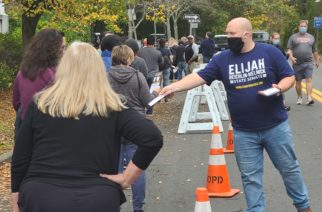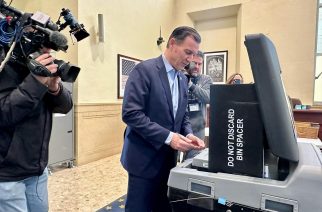
A new bill that would make it easier to prosecute sex traffickers is getting strong support from the Manhattan District Attorney.
Specifically, the bill would eliminate the need to prove force, fraud or coercion when prosecuting sex trafficking crimes against a minor in New York.
The legislation is being sponsored by Assemblywoman Amy Paulin, D-Scarsdale, and Sen. Andrew Lanza, R-Staten Island.
Currently a prosecutor in New York must prove in court that a suspect used force, fraud or coercion when trafficking individuals both above and below the age of sexual consent. This requirement makes it difficult to get a conviction in many cases. The Lanza-Paulin bill (S.6894/A.9453) would eliminate that additional burden of proof when the victim is a minor.

Lanza
“If someone is underage, you shouldn’t have to prove force. A child doesn’t have the capacity to consent to engage in a sexual act,” Paulin said.
Forty-six states and federal law have already passed similar legislation recognizing that it is unnecessary to prove force when a minor is the victim of human sex trafficking. In those jurisdictions, it must only be found that the defendant profited from promoting the commercial sex acts of a minor.
Paulin notes that New York was the first state to develop a court system specifically designed for settling human trafficking cases. In addition, New York was responsible for the introduction of the Safe Harbor Act, which promises underage victims the right to report crimes without being charged. So now she says New York needs to remain progressive on this issue.
“By removing the requirement to prove force, we will be able to deal more aggressively with sex traffickers in New York,” Paulin said. “A person under the age of 18 is a child and a prosecutor should not have to prove that the child was forced into committing these horrific actions.”
It is well known to law enforcement and some legislators that high-traffic port cities in New York, Florida, California and Texas see the largest influx of human trafficking, with young women being brought in from other countries to serve as sex slaves in urban areas. However, compiling hard data has proven difficult in such a shadowy market.

Paulin
“It has been hard to gather data on this,” Paulin said. “We don’t know how many girls are walking the streets in captivity. I think people are doing the best they can. If we bring this issue into the public eye, we can spread awareness and make a change”.
Sex trafficking victims have typically been abused emotionally or physically in their past and traffickers take advantage of those unfortunate circumstances, by continuing the abuse. Victims are at times convinced to use drugs or obligated to repay a financial debt to their captor.
To stress the urgency of the bill, its sponsors tell the story of 14-year old “Jennifer” was lured into prostitution by her 40-year-old boyfriend, “Mac.” For months Jennifer was sold online for sex and was required to make a quota set by Mac. Although Mac deceived Jennifer repeatedly, and at times used force to ensure Jennifer’s obedience, Jennifer believed that Mac loved her and refused to testify against Mac.
This refusal to accept that they are being victimized by an older exploiter is especially common with victims of human trafficking as they are often traumatically bonded to their exploiter, who can alternate between acts of affection and violence.
Manhattan District Attorney Cyrus Vance Jr. is voicing strong support for the Lanza-Paulin bill. His official website details the effects of sex trafficking and provides a hotline where victims can report or seek assistance.

Vance
To demonstrate how the proposed law would help prosecutors, Vance cites the case of Damon Hayes, who was recently convicted in Manhattan of running a sex trafficking operation around Super Bowl weekend in January 2014, exploiting two women and a 15-year-old child who Hayes recruited from Florida.
Even though the 15-year-old was too young to legally engage in sexual activity with grown men, Manhattan prosecutors had to prove that she was forced to do so by the defendant under the threat of violence to secure the conviction.
Vance also pointed to the recent prosecution of Froilan Rosado for running a prostitution ring with 10 teenagers, ranging in age from 15 to 18, and trafficking an 18-year-old woman into that ring.
Even though Rosado was prostituting minors — many of whom were so young that they could not legally consent to sexual activity with adults — the DA’s Office could only convict Rosado of trafficking the 18-year-old, because evidence showed that he forced her to engage in sexual acts through physical violence and threats.
By proving Rosado prostituted women under the age of 18-years-old under the Lanza-Paulin legislation, prosecutors would have also proved that he trafficked them, and would not have needed to additionally prove force, fraud or coercion.
“Those who profit off of children’s bodies are not merely pimps, but traffickers — period,” Vance said. “Teens and children, particularly those too young to consent to sexual activity cannot consent to being raped just because there is money exchanged,” he added.
“Children do not have the legal, emotional or psychological capacity to consent to sexual activity with adults.”
The bill is in the Codes Committee in both the Senate and Assembly.









